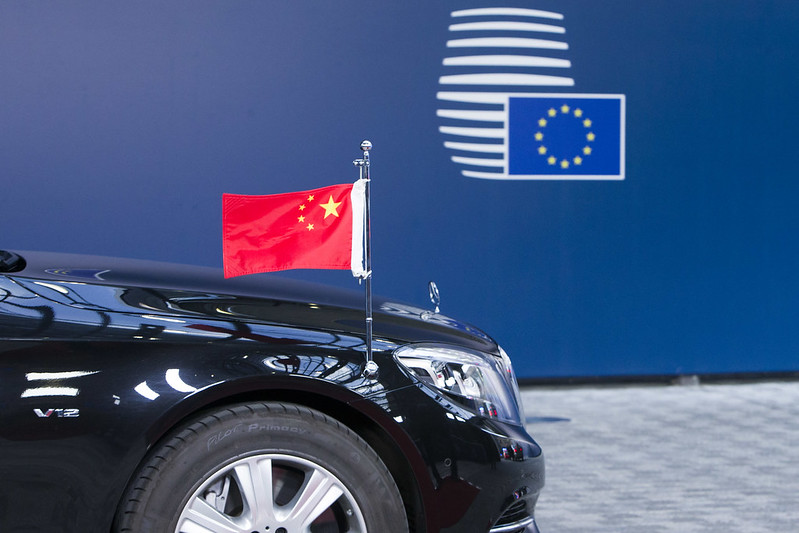
Relations of CEE countries with China are often a subject to controversy. Tamas Matura, Hungarian expert on China, sees little justification for criticism from Western EU members. He warns that applying double standards threatens to build up lines of division within the EU.
Six years ago, I was attending an interesting closed-door roundtable on EU-China relations in Brussels, where a diplomat from one of the Western European countries set forth his remarkable assessment of the 16+1 initiative as he said: “China and Central Europe are building a new Berlin Wall across the EU”. I had the chance to attend a similar event in Brussels last December, and that time I was told by the representative of another major Western country that China simply bought off Central and Eastern European countries and Eastern member states were”puppets at the hands of Beijing“. A recent article by the Handelsblatt on a report prepared by EU ambassadors that sharply criticises China’s BRI (Belt and Road Initiative) project stated that only the Hungarian ambassador refused to sign the paper, because”countries such as Hungary and Greece, which both rely on Chinese investment, have in the past shown they are susceptible to pressure from China”.
Indeed, the cooperation between China and the CEE region has been attracting significant attention in Brussels and other major EU capitals in recent years. Many argue that the lack of transparency and the semi-institutional form of the project serve Chinese interests, and that the 16+1 cooperation itself is a malign Chinese attempt to divide and rule Europe, where cash-strapped CEE countries simply open the doors of the EU to Chinese influence in exchange for economic gains. In the following, I would like to challenge this oversimplified discourse and to point out that the source of Chinese influence is not the economy, as despite all previous expectations Chinese economic presence is still insignificant in CEE countries, and what China has been offering is not an attractive economic alternative to the EU members of the region. I believe it is of utmost importance to understand the real causes of the pro-China movement of certain CEE countries, since a misguided and oversimplified discourse focusing on Chinese economic offers does not catch the reality, and measured responses cannot be placed on misbeliefs.
Trade and Investment Dependency on China? Not According to the Numbers!
First, CEE member states of the EU have been economically outperforming the rest of the Union: annual GDP growth averaged 2.5 percent in the region between 2012 and 2017, compared to the 1.4 percent average of the whole EU. The macroeconomic stability of the region is based on strong net exports, relatively low inflation and unemployment, and the high inflow of foreign direct investment (2 percent of their GDP annually on an average) plus the approximately €150 billion in EU structural funds that CEE member states received between 2012 and 2016.
The total trade surplus of these eleven countries was €7.5 billion in 2016. Indeed, exports to China have been growing significantly, 9 percent annually on an average since the establishment of the 16+1 cooperation. Still, the share of exports to China was as low as 1.2 percent of the total exports of CEE countries. The stock of Chinese investment equalled €5.5 billion, which was only 1.2 percent of the total stock of FDI in the five major economies (Czech Republic, Hungary, Poland, Romania and Slovakia) of the region in 2017. Meanwhile the total stock and share of Chinese capital in the five biggest economies (Germany, the UK, France, Italy and Spain) of the EU were €92.3 billion and 2.5 percent respectively in 2017. Actually, the export dependence of Germany, the UK and of France on China is higher (6.3, 4.4 and 3.5 percent respectively) than any of the CEE countries. None of the countries of the region are cash-strapped or dependent on exports to or investment from China in any respect.
Positive Attitude to China Lower than EU Average
It is also noteworthy that public support among the population of CEE member states does not back the enthusiastic pro-China policies of some of their governments. According to a recent survey by Eurobarometer, only 40 percent of Hungarian and 25 percent of Czech respondents have a positive perception of China, while the EU average is 32 percent. The same applies to public discourse. In the framework of project ChinfluenCE, we analysed almost 10,000 articles published on China in the Czech Republic, Hungary and Slovakia in the period from 2010 to 2017. According to our results, negative opinions outweighed positive ones by a wide margin, while the vast majority of articles were neutral towards China. Though the Czech leadership has made a political turnaround and became a supporter of Beijing in the recent years, the public discourse is still highly critical of China, and topics like human rights and other values are high on the agenda.
Hungarian Support for Chinese Agenda Is Merely Lip Service
Despite all of the above-mentioned facts and figures, it would be hard to argue that China has not gained any political influence in certain CEE member states, as it certainly has. One of the most explicit examples is Hungary, as the current government offered its blatant support to Beijing in several cases. Budapest watered down the common statement of the EU on human rights, attended the Belt and Road Forum in Beijing, signed memorandums of understanding with China against the will of the EU and even bolstered the Chinese discourse on the South China Sea issue following the ruling of the Permanent Court of Arbitration in the Hague.
So, based on the assumptions mentioned at the very beginning of this article, Hungary must have gained tremendous trade and investment opportunities in China in exchange of its political support. It has not. The amount of new Chinese direct investment that flowed in the country between 2012 and 2017 was insignificant, as low as USD 20 million, while the growth of exports to China was half of the regional average, and it is highly dominated by multinational companies.
Orbán, Zeman, Ponta: The Strongmen’s Soft Spot for China
So, what drives the pro-China development of some of the CEE countries if not lucrative economic exchanges with Beijing? One potential explanation is the personal political motivations of certain political leaders in the region. Most Czech experts regard President Miloš Zeman as the main initiator of the new China policy of the country, as he was the only EU head of state who attended a military parade in Beijing marking the end of World War Two. In Hungary, Prime Minister Viktor Orbán seems to believe that close relations to China may serve as a bargaining chip in his struggle with Brussels. Ever since Victor Ponta stepped down in Romania, the country has been barely visible on the map of the 16+1 activities, and since the Polish leadership became disappointed in 2017, Beijing-Warsaw relations have taken a less amicable turn.
Bringing the Divisive Discourse to an End
If the EU is to strengthen its common China policy, Brussels and major Western member states should stop blaming CEE countries for pursuing better economic relations with China, as such arguments could be easily labelled as unfair double standards. Western companies and politicians have been eager to cooperate with China for many decades, and CEE countries have no other intention but to get their small slice of the pie, though not very successfully yet. The fact that the economic outcomes of China-CEE relations are considered disappointing by many, and that some leaders of the region still see Beijing as a potential ally, leads us back to the assumption that the 16+1 is a political and not economic initiative in nature. Europe has to find the proper answers to address this issue, while the discourse on “cash-strapped CEE countries bought off by China” leads nowhere, or even worse, it may prove to be counterproductive.
The text was originally published in The New Federalist.
Written by
Tamás Matura
tamas_maturaTamás Matura is the Founder of the Central and Eastern European Center for Asian Studies and works as an assistant professor of international relations at the Corvinus University of Budapest.


